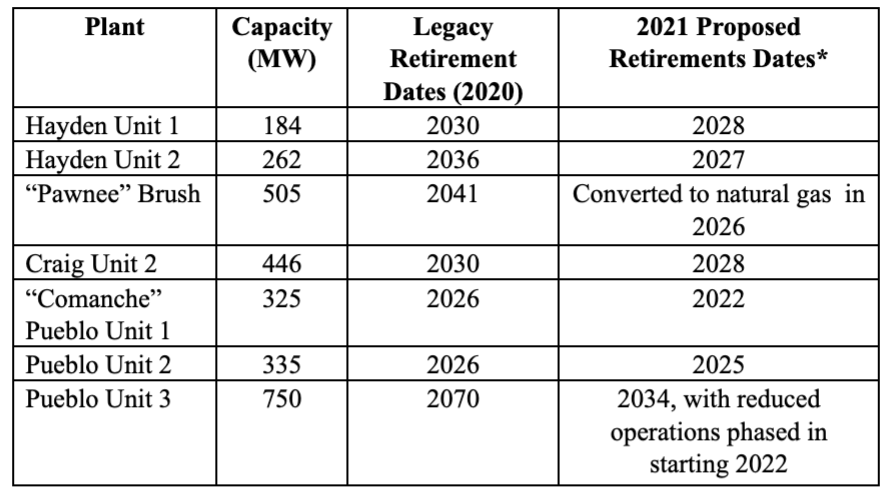2021 In Review: Colorado’s Top 2021 Climate & Energy Activities
2021 was a big year for Colorado energy politics and programs, from the legislature to the Public Utilities Commission to local issues in Commerce City and Boulder. Clean Energy Action keeps a watchful eye on the evolving issues at all levels of the state to keep the public informed and identify intervention points. As the year draws to a close, we gathered some of the top themes and headlines to re-cap where the state has been, where it’s going, and how we are staying involved.
Cringy climate headlines: Denver air quality ranked the worst in the world, Hawaii gets more snow than Denver.
Following another summer of wildfires in the west, Denver, Colorado persisted on a list of the world’s most polluted cities in the world. One afternoon in August, Denver briefly topped the list on IQAir.com, which provides real-time air quality information. This somber news preceded an uncharacteristically warm autumn season, with frequent November temperatures in the 70s. Skiers and snowboarders alike cringed as a new record was set in Denver: for the first time in recorded history, Denver’s first snowfall [a mere 0.3 inches] fell after the beginning of December. This 232-day snowless streak ties one other period of time, in 1887. As Coloradans stomached this news, across the ocean, Hawaii was forecasted to receive at least 12 inches of snow in a semi-typical blizzard. This comparison shines a light on the bizarre, unpredictable weather patterns characteristic of our new reality.
Xcel announced accelerated coal plant retirements. Advocates, communities say they still aren’t soon enough.
In January 2021, Xcel Energy announced that it planned to close its Hayden coal units 2 to 9 years sooner than planned. Xcel’s Clean Energy Plan, submitted in March 2021 in docket no. 21A-0141E, provided details for other accelerated coal schedules. CEA hosted several citizen engagement education sessions to help citizens participate in the public comment response to these plans, amplifying community voices against coal.
* See Xcel’s Clean Energy Plan application and November 2021 Non-Unanimous Settlement Agreement
Xcel’s plans for Pueblo Unit 3 have remained a point of contention with Colorado communities and regulators. At the Public Utilities Commission (PUC), an investigatory proceeding on the history and continued operations at Pueblo Unit 3 (docket no. 20I-0437E) demonstrated in a March 2021 report that the plant has faced reduced operations, performance delays, outages, high costs, and other issues. PUC staff questioned, “why is [Pueblo Unit 3], a unit still in the first decade of its 60-year useful service life, plagued with such poor unit reliability?” Pressure to close the plant sooner persists, as do discussions about how to support a just transition away from coal (perhaps in line with the 2020 state-sanctioned Just Transition Action Plan). The outcome of the Pueblo Unit 3 plant may yet evolve as regulators consider the compromises, proposals, data, and opinions expressed in Xcel’s Clean Energy Plan proceeding.
Whistleblowers revealed faulty air permitting processes, Suncor refinery comes under scrutiny.
The Suncor oil refinery, situated just north of Denver in Commerce City, drew national attention as whistleblowers at the Colorado Department of Health and the Environment’s Air Pollution Control Division claimed that the agency falsified data and illegally issued air quality permits to the plant. On February 17, WildEarth Guardians sued Colorado regulators over their years-long, illegal delay in reviewing and updating air pollution permits for Suncor Energy’s oil refinery north of Denver. Following this action, the nonprofit Cultivando submitted and received approval of an application to perform independent air-quality monitoring in Commerce City using just under $1 million of the $9 million Suncor settlement funds. The investigation, however, is still ongoing.
Cultivando hosted a community event, Ecofiesta!, in July to educate community members about local energy issues. Clean Energy Action supported the event, and can be seen in this inspiring five-minute video recap of the event here.
The Polis Administration’s first Greenhouse Gas Emissions Reduction Roadmap was met with criticism.
Governor Polis released the final version of the Greenhouse Gas Pollution Roadmap on January 14. The report built off of a draft report released in Fall of 2020 by adding legislative goals and more equity considerations, but groups say more still needs to be done. Members of some frontline communities in Colorado responded with a press release calling for more inclusion in the roadmap for protections regarding the most vulnerable and impacted residents in the state. Clean Energy Action was among the groups asking Governor Polis to update the Greenhouse Gas Emissions Reduction Roadmap to update its methane calculations, account for emissions for exported oil and gas, and reduce, not increase, oil and gas production.
Clean Energy Action supported City of Boulder transparency, accountability.
In support of the City of Boulder City Council election cycle, Empower Our Future and CEA co-hosted a candidate forum on Climate and Energy with two dates. If you missed the forums, you can watch the videos below.
The City of Boulder and Xcel also selected 18 community members to be part of the inaugural Xcel Energy Partnership Community Advisory Panel, including former CEA Board members Emily Swallow and Julie Zahniser. The panel will work to hold Xcel to its promises and get Boulder to 100% renewable energy as fast as possible. This partnership, or franchise, resulted as a compromise from the failed ballot measure in 2020 which would have established a municipal utility for Boulder (read more about CEA’s position on this issue here). CEA has raised concerns about the transparency of the process thus far and the role of Boulder in the statewide energy plan, but we are hopeful that this panel will represent Boulder’s goals.
Colorado Public Utilities Commission drafted new rules, incorporated new values, and embraced new technologies.
The Colorado PUC was especially busy in 2021 as new legislative mandates, plans, and priorities went into effect. Topics explored included new transportation electrification plans, interconnection of distributed energy resources, distribution system planning, “distributed intelligence” capabilities of advanced metering infrastructure, 500+ mile transmission projects, regional transmission organization participation models, Tri-State Electric Corp.’s first resource plan, multiple rate cases, and much more. To read more about these activities, see CEA’s “PUC Updates” in their blog.
In 2022, the PUC will start to grapple with the requirements in SB 21-272, Measures to Modernize the Public Utilities Commission, which requires the PUC to investigate new rules to consider equity and disproportionately impacted communities. These efforts will complement the Office of the Utility Consumer Advocate, the rebranded Office of Consumer Counsel, as it reflects its new legal rights to intervene on decarbonization and environmental justice efforts.
Colorado Oil and Gas Conservation Commission drafted new financial accountability requirements for abandoned wells.
In response to the 2019 Senate Bill 181, the Colorado Oil and Gas Conservation Commission (COGCC) spent much of 2021 discussing draft rules to govern the cost allocation of cleaning up or plugging obsolete oil and gas wells. These rules are essential to holding energy companies accountable for returning the land back to its pre-well state. A primary goal of the rules was to ensure that adequate financial bonds are posted so the state has adequate funds (estimated to cost at least $92,000 per well) to plug and remediate “orphaned” wells in the case of bankruptcy or other disruption. The latest rule drafts fall short of advocates’ recommendations by adopting “blanket bonds” that will likely fail to protect the state. The rulemaking will continue into 2022.
Colorado Department of Transportation pursued emissions reductions standards, new strategies.
In reaction to 2021 legislation and the state’s GHG Pollution Reduction Roadmap, the Colorado Department of Transportation (CDOT) proposed a new standard to reduce GHGs from the transportation sector, improve air quality and smog, and provide more transportation options. The standard seeks to quantify the impact of future transportation projects and ensure that GHG emissions do not exceed set reduction amounts. See this fact sheet for an overview, or the October revised rules here.
National and international audiences focus on climate and racial equity
Deb Haaland, member of the Pueblo of Laguna in New Mexico, made history this year as the first Native American person to serve as a White House cabinet secretary. As the new Secretary of the Department of the Interior, she is charged with managing the country’s natural resources and cultural heritage. President Joe Biden’s office also took a significant step to support racial equity by launching the Justice40 initiative, a promise to deliver at least 40% of the overall benefits from Federal investments in climate and clean energy to disadvantaged communities. Some elements of the Justice40 initiative were reflected in the mammoth Build Back Better Act, containing billions of dollars to support clean energy, environmental justice, electric vehicle taxes, tribal sovereignty, buildings, and more. The 2021 United Nations Climate Change Conference (COP26) also made international headlines this year as countries, not including the U.S., pledged to support the Glasgow Climate Pact, a pledge to "phase down" unabated coal (note, this does not include "net zero" coal units with carbon capture and storage technology), re-visit emissions reduction plans in 2022, and commit to climate finance for developing countries. COP26 also acknowledged the critical role of nature in climate action, reached agreements on methane reductions, and celebrated 33 countries that announced net zero targets.
CEA celebrated 15 years of climate action and citizen engagement!
2021 marks Clean Energy Action’s fifteenth birthday! Earlier this year, Leslie Glustrom gave a great overview of CEA's past, present, and future, and Xcel's Energy Resource Plan (ERP), with engaging discussion afterward. The slides and video from the event can be viewed here. CEA also published two white papers this year: Privatizing the Risks and Not Just the Profits, a response to RMI’s reports on How to Retire Early; and The Myth of the “Regulatory Compact.” Our blog also highlighted issues in the valuation of solar energy, issues with methane accounting, the myth of “net zero” goals, and much more.
Thank you to everyone who read our research or attended our trainings, meetings, and events. And of course, thank you to our generous donors who make this work possible. We pursue this work for you, and for the planet! May 2022 bring us more to celebrate, more opportunities to interact with our regulators, and more bold climate leadership!

